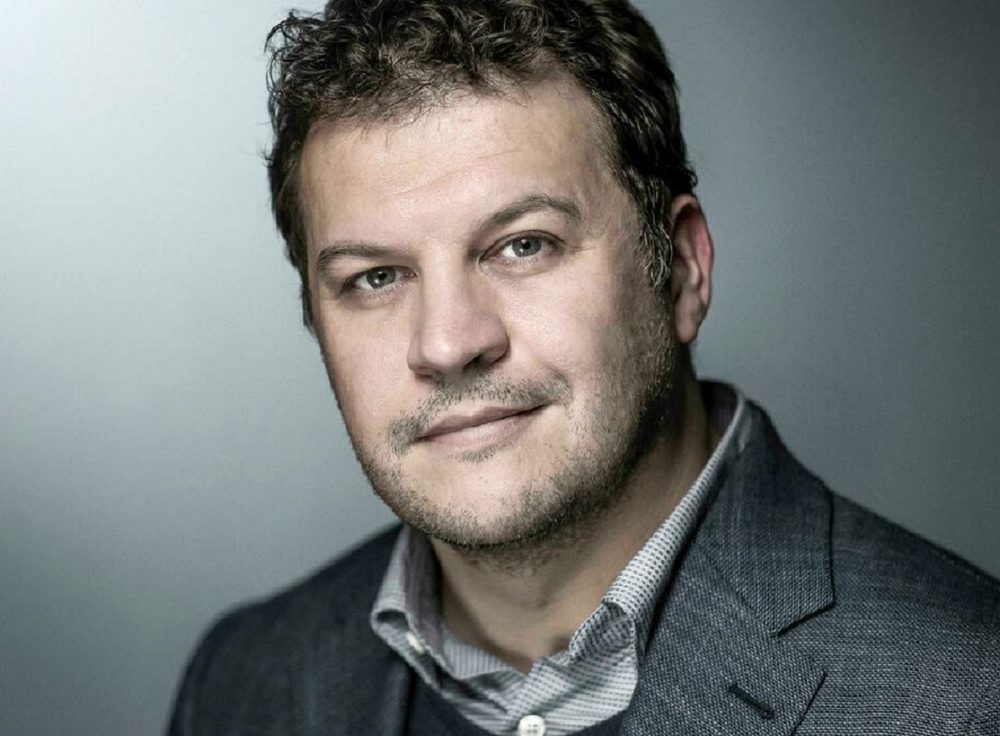Приговор при свечах / Judgment in candlelight - Владимир Анатольевич Арсентьев
Книгу Приговор при свечах / Judgment in candlelight - Владимир Анатольевич Арсентьев читаем онлайн бесплатно полную версию! Чтобы начать читать не надо регистрации. Напомним, что читать онлайн вы можете не только на компьютере, но и на андроид (Android), iPhone и iPad. Приятного чтения!
Шрифт:
Интервал:
Закладка:
A hundred years before the events described by Vladimir Arsenyev (1872–1930) in his novels, Emperor Alexander I of Russia (1777–1825) ordered Mikhail Speransky to develop a general plan of government transformation. The plan was ready by autumn 1809.
Speransky’s plan envisaged three parallel sets of institutions – legislative, judicial, and executive or administrative. The legislative institutions were dumas – established at the levels of volost (district), uyezd (county), governorate, and finally, the State Duma at the highest level.
The volost duma comprised volost land owners and state peasant deputies[212] (one from every 500 people). They elected volost government and uyezd duma members. The uyezd duma, in turn, elected uyezd government and governorate duma members; ultimately, the governorate duma elected the members of the corresponding government and State Duma.
The State Duma met annually, reviewing and passing bills proposed by the government. They also approved the state budget and made representations regarding the needs of the public, the ministers’ responsibility, and any authorities’ orders that violated the basic laws of the country.
The governments of volosts, uyezds, and governorates were executive authorities elected by local dumas. Ministers, however, were appointed by the monarch.
The judicial authorities consisted of volost, uyezd, and governorate courts comprising elected judges. Trials involved a jury. The highest judicial instance was the Senate, members of which were elected by the State Duma and approved by the emperor.
The State Council, consisting of nobles appointed by the monarch, was created to coordinate the actions of higher state authorities. The Council was a consultative body that reviewed legislative proposals and financial activities before they were submitted for consideration by the State Duma. The Council also monitored compliance with the law in all areas of public administration.
By and large, Alexander accepted Speransky’s plan, and the State Council was established on January 1, 1810. It was divided into four departments – legislative, military, civil and ecclesiastical affairs, and state economy. The general assembly included members of all departments and the ministers. The Council was presided over by the monarch himself or his appointed chairman. This authoritative body was to review all laws, statutes, and important measures, and its decisions were submitted for the emperor’s approval. In this way, the “highest approved opinion of the State Council” became law.[213]
It was Emperor Nicholas I (1796–1855) who originally tasked Speransky with developing a legal code for the country. Under Speransky’s guidance, the Second Section[214] managed to accomplish the tremendous codification work that it had been trying to do since the year 1700. In 1830, the Complete Collection of Laws of the Russian Empire in 45 volumes was finalized. The compendium included old laws and decrees in chronological order, from the Sobornoe Ulozhenie of 1649 to the enthronement of Nicholas. The Code of Laws of the Russian Empire in 15 volumes, where existing legislation was arranged in a systematic order, was compiled and printed by 1833.
Speransky’s transformation of state machinery and social policy occurred amid the crisis of the feudal serfdom system that had been intensifying since the late 18th century. The changes that Speransky strove to bring about were supposed to result in the abolishment of serfdom, grant political and civil rights to the people of Russia, and gradually introduce the principles of European political culture into the Russian society.
People appropriately termed Russia’s old, pre-reform court proceedings “undue process.” The closed sessions did not involve parties to the case or their representatives, while courts delivered judgments based on written police “inquests” with no society monitoring. Those judgments were often partial, based on bribery and high-handednes, not on law. Siberian chieftains and leaders, governing at their sole discretion, used arbitrary force and violence as they saw fit. For them, to govern also meant to judge. The Siberian governor Gagarin was hanged for bribery, embezzlement, treasure theft, and other abuse of office.[215]
After Speransky’s audit was complete, 680 persons were put to trial, among them two governors and 48 public officials.[216] However, the cause of abuse was not the people themselves but the whole system. The country’s anathema was economic oppression of foreigners and peasants.
By January 1820, Speransky already considered his mission accomplished. He reported to the tsar that he had nothing to do in Siberia, as it was impossible to rule that land. Still, Speransky remained there for another year. According to his first impression, Siberia was “not a place for living or higher civil education.”[217]. From 1810 to 1822, Speransky was a Mason, although Freemasonry was forbidden in Russia. He was acquainted with the works of Western European mystics and in 1819 translated Thomas à Kempis’s The Imitation of Christ into Russian.
Inquisitive justice was dominant in pre-reform Russia. Proceedings were held in secret. The principle of writing was key, which meant that court decisions were based not on direct live oral experience but on written materials acquired during the investigation. The evidence was evaluated based on formal criteria, its value predetermined by a law that strictly defined what was to be considered evidence. Confession was the best proof in the world, and consequently, its high value was predetermined. Torture was widely used to get confessions. The accused could exercise their rights in the scope only allowed by the investigators, thus turning into objects of investigative activities.[218]
The new judicial statutes published on November 20, 1864 transformed this nether world completely. Their declaired aim was to guarantee “justice that would be efficient, just, merciful, equal to all”—and they truly strove to fulfill that purpose. Along with the “establishment of judicial statutes,” new rules for criminal and civil court proceedings were published as well as the “statute of penalties to mete out by justices of
Прочитали книгу? Предлагаем вам поделится своим отзывом от прочитанного(прослушанного)! Ваш отзыв будет полезен читателям, которые еще только собираются познакомиться с произведением.
Уважаемые читатели, слушатели и просто посетители нашей библиотеки! Просим Вас придерживаться определенных правил при комментировании литературных произведений.
- 1. Просьба отказаться от дискриминационных высказываний. Мы защищаем право наших читателей свободно выражать свою точку зрения. Вместе с тем мы не терпим агрессии. На сайте запрещено оставлять комментарий, который содержит унизительные высказывания или призывы к насилию по отношению к отдельным лицам или группам людей на основании их расы, этнического происхождения, вероисповедания, недееспособности, пола, возраста, статуса ветерана, касты или сексуальной ориентации.
- 2. Просьба отказаться от оскорблений, угроз и запугиваний.
- 3. Просьба отказаться от нецензурной лексики.
- 4. Просьба вести себя максимально корректно как по отношению к авторам, так и по отношению к другим читателям и их комментариям.
Надеемся на Ваше понимание и благоразумие. С уважением, администратор knigkindom.ru.
Оставить комментарий
-
 Гость Анастасия28 июль 20:09
Анастасия, спасибо. Спасибо за этот мир. Спасибо за эмоции, за ночи без сна за книгой. Спасибо. ...
Крайние земли - Анастасия Владимировна Лик
Гость Анастасия28 июль 20:09
Анастасия, спасибо. Спасибо за этот мир. Спасибо за эмоции, за ночи без сна за книгой. Спасибо. ...
Крайние земли - Анастасия Владимировна Лик
-
 Гость Светлана26 июль 20:11
Очень понравилась история)) Необычная, интересная, с красивым описанием природы, замков и башен, Очень переживала за счастье...
Ледяной венец. Брак по принуждению - Ульяна Туманова
Гость Светлана26 июль 20:11
Очень понравилась история)) Необычная, интересная, с красивым описанием природы, замков и башен, Очень переживала за счастье...
Ледяной венец. Брак по принуждению - Ульяна Туманова
-
 Гость Диана26 июль 16:40
Автор большое спасибо за Ваше творчество, желаю дальнейших успехов. Книга затягивает, читаешь с удовольствием и легко. Мне очень...
Королевство серебряного пламени - Сара Маас
Гость Диана26 июль 16:40
Автор большое спасибо за Ваше творчество, желаю дальнейших успехов. Книга затягивает, читаешь с удовольствием и легко. Мне очень...
Королевство серебряного пламени - Сара Маас










